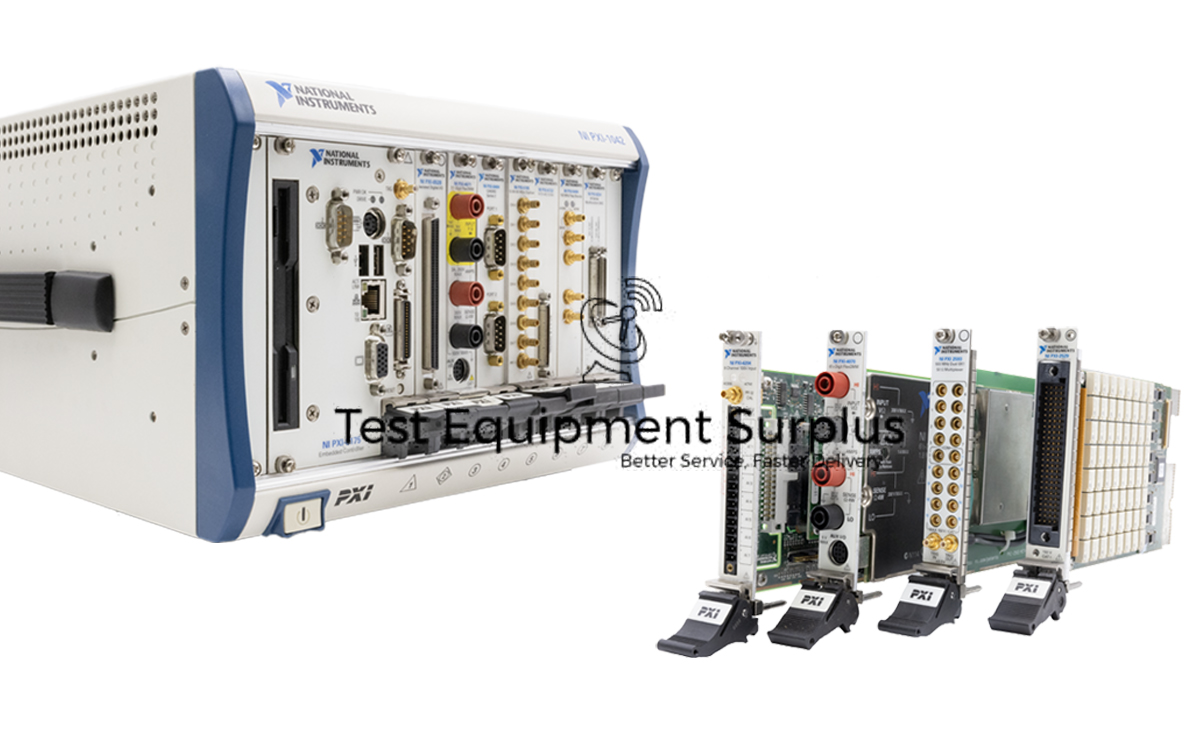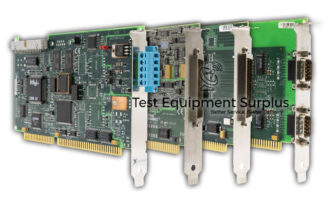Description
The PXI-2575, with part number 778572-75, is a versatile PXI Multiplexer Switch Module that employs electromechanical relays and offers various topologies including a 1-wire 196 x 1, 2-wire 95 x 1, and a 2-wire 98 x 1 multiplexer.
Designed for durability and ease of maintenance, the module’s relays are socketed and user-replaceable, boasting an electrical life of approximately 10^5 operations. The device’s switch bandwidth is an impressive 20 MHz, and it handles a maximum switching power of 60 W, 62.5 VA (DC to 60 Hz) per channel.
Incorporating a relay count tracking feature, the module ensures reliability and aids in predictive maintenance. It utilizes a 200 POS LFH Matrix 50 I/O connector for efficient signal management.
However, it is not recommended for 2-wire resistance measurements. The relays, with contacts made of silver and gold, operate typically within 1 ms and at a maximum of 3.4 ms, facilitating a scan rate that ensures swift and accurate signal routing.
| Attribute | Specification |
|---|---|
| Part Number | 778572-75 |
| Module Type | PXI Multiplexer Switch Module |
| Relay Type | Electromechanical |
| Available Topologies | 1-wire 196 x 1, 2-wire 95 x 1, 2-wire 98 x 1 Multiplexer |
| Relay Replacement | Socketed (User-replaceable) |
| Electrical Life of Relays | Approximately 10^5 operations |
| Switch Bandwidth | 20 MHz |
| Maximum Switching Power | 60 W, 62.5 VA (DC to 60 Hz) per channel |
| Relay Count Tracking Feature | Yes |
| Connector Type | 200 POS LFH Matrix 50 I/O connector |
| Resistance Measurement Recommendation | Not recommended for 2-wire resistance measurements |
| Typical Relay Operating Time | 1 ms |
| Maximum Relay Operating Time | 3.4 ms |
| Relay Contact Material | Silver, gold covered |
Question 1: What is the maximum switching power and bandwidth of the PXI-2575 Multiplexer Switch Module, and what types of topologies does it support?
Answer 1: The operational lifespan of the socketed electromechanical relays in the PXI-2575 Multiplexer Switch Module is approximately 100,000 (10^5) operations.
Question 2: What are the various topologies supported by the PXI-2575 Multiplexer Switch Module part number 778572-75, and what are its key features in terms of relay life, bandwidth, and switching power?
Answer 2: The PXI-2575 Multiplexer Switch Module with part number 778572-75 supports 1-wire 196 x 1, 2-wire 95 x 1, and 2-wire 98 x 1 multiplexer topologies, and its key features include socketed electromechanical relays with an electrical life of approximately 10^5 operations, a switch bandwidth of 20 MHz, and a maximum switching power of 60 W, 62.5
Question 3: What is the maximum switching power capacity per channel for the PXI-2575 Multiplexer Switch Module with part number 778572-75?
Answer 3: The PXI-2575 PXI Multiplexer Switch Module offers topology configurations of 1-wire 196 x 1, 2-wire 95 x 1, and 2-wire 98 x 1, and its electromechanical relays have an operational life of approximately 10^5 operations with a typical operation speed of 1 ms and a maximum of 3.4 ms.
Question 4: What are the various topology configurations available for the PXI-2575 PXI Multiplexer Switch Module, and what are the characteristics of its electromechanical relays in terms of operation life and switching speed?
Answer 4: The maximum switching power capacity per channel for the PXI-2575 Multiplexer Switch Module with part number 778572-75 is 60 W, 62.5 VA (DC to 60 Hz).
Question 5: What is the operational lifespan of the socketed electromechanical relays in the PXI-2575 Multiplexer Switch Module?
Answer 5: The PXI-2575 Multiplexer Switch Module supports a maximum switching power of 60 W, 62.5 VA (DC to 60 Hz) per channel and has a switch bandwidth of 20 MHz, while offering various topologies including 1-wire 196 x 1, 2-wire 95 x 1, and 2-wire 98 x 1 multiplexer configurations.





